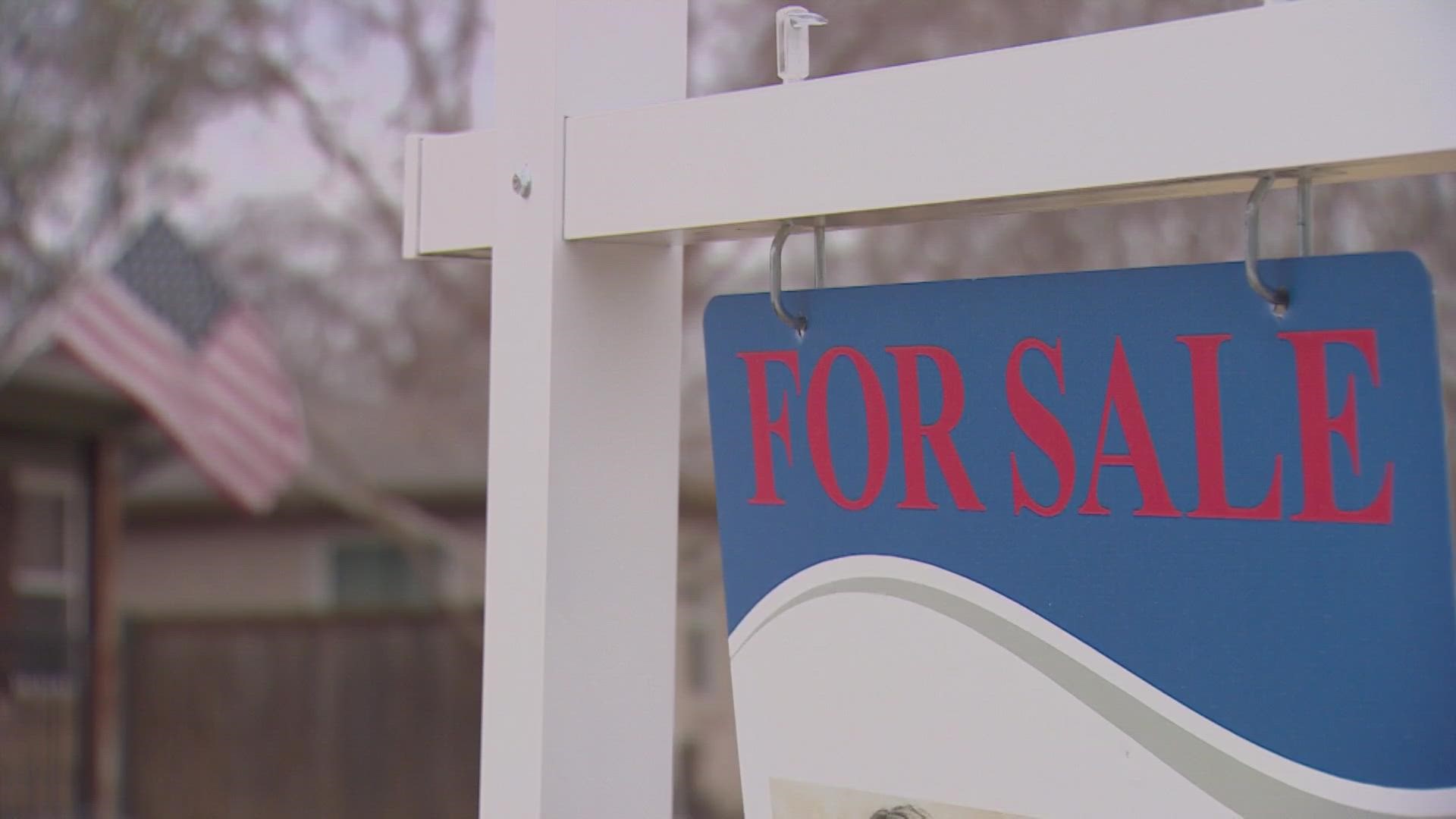FORT WORTH, Texas — The Dallas-Fort Worth housing market is expected to continue to see rising prices in 2023 despite a negative outlook nationwide.
Susanna Bartolomei is an associate broker for Williams Trew in Fort Worth, and the competitive market has driven her business from 25% off-market sales to roughly 50%.
“Experience in this market matters and quality of agent in this market matters,” she said. “Prices are staying strong but there are houses out there and actually now there are some deals to be had.”
Nationally, there could finally be housing relief, though. Goldman Sachs is predicting a 2.6% percent drop in prices and Zillow at a 1% fall, with the 30-year fixed mortgage rate around 6.6% to start this week.
That’s not the case in North Texas. The National Association of Realtors and Zillow both list the Dallas-Fort Worth area as a top 5 hottest market for 2023.
“If you’re ready to buy, you probably want to buy now,” Bartolomei said. “All indications across North Texas are that we’re probably going to see appreciating home prices.”
Federal data shows local prices have fallen off a little lately to a median list price of $430,000 in January, down from nearly $490,000 in June of 2022. Permits for new homes have tumbled too, which is why Batolimei and others expect the price rise to continue. She tells buyers to look for about 85% of their perfect home.
“Maybe it’s one less bathroom than you want but you can add it on later,” she said. “Maybe it’s an outdated kitchen that you lipstick in a couple of years, but is it 85% what you need. Is it hitting the right neighborhood? Is it hitting the right square footage?"
Part of the issue is interest hurting supply as much as demand with homeowners who are locked into rates below 5% opting to wait instead of sell.
“Supply and demand, good ole economics, comes into play,” Bartolomei said.
Strong job growth in North Texas has led to more people who need a place to live. Unless that changes, the trend will likely stay upward.
“We’re a consumer culture that gets what they want when they want it,” Bartolomei said. “Right now, we’re having to exercise something called patience.”

